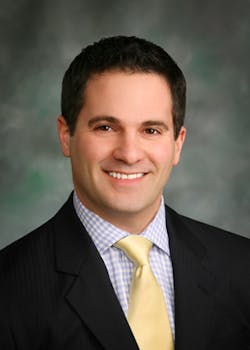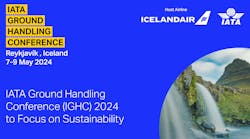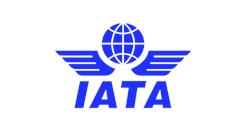At long last, months after the 2012 reauthorization of the Federal Aviation Administration (FAA) originally expired, the House and Senate finally unveiled proposals to reauthorize the agency (set its “policy direction” and funding levels).
In early February, House Transportation & Infrastructure (T&I) Committee Chairman Bill Shuster (R-PA) unveiled his long-awaited FAA reauthorization proposal, the Aviation Innovation, Reform, and Reauthorization Act (the AIRR Act, H.R. 4441). On March 10, Senate Commerce, Science, and Transportation Committee Chairman John Thune (R-SD) and Ranking Member Bill Nelson (R-FL) introduced the Federal Aviation Administration Reauthorization Act of 2016.
While an AIRR Act provision to spin off air traffic control (ATC) from the FAA into a nonprofit, independent corporation (the creatively titled “ATC Corporation”), has garnered the most attention, buried in both the House and Senate bills is identical language directly impacting the international aviation maintenance community. Here is the lowdown:
• Foreign Drug & Alcohol Testing. Both proposals reiterate the mandated rulemaking from the last FAA reauthorization bill (the FAA Modernization & Reform Act) requiring all Part 145 repair station employees responsible for safety-sensitive maintenance functions on Part 121 air carrier aircraft be subject to an alcohol and controlled substances testing program (consistent with the applicable laws of the country in which the repair station is located). However, the AIRR Act takes it a step further by requiring the agency to issue a notice of proposed rulemaking (NPRM) within 90 days of enactment and a final rule one year later. The arbitrary deadline will result in a hurried rulemaking with detrimental effects on the international aviation community, including the U.S. air carriers and the business and general aviation operators that benefit from the safe and efficient worldwide maintenance network.
• Mandated Background Checks. Both bills require that all Part 145 repair station employees performing safety-sensitive functions on an air carrier aircraft undergo “a pre-employment background investigation sufficient to determine whether the individual presents a threat to aviation safety.” This provision significantly expands current Transportation Security Administration (TSA) requirements, lacks a safety and security justification, and is contrary to accepted risk-based oversight principles.
• Safety Assessment System. The proposals expand on the FAA Modernization & Reform Act’s safety assessment system for Part 145 repair stations. Specifically, it would grant the agency access to information or data in the possession of a Part 121 air carrier “related to the frequency and seriousness of any corrective actions” implemented on aircraft following “heavy maintenance work” at a foreign repair station. Heavy maintenance work is defined as “a C-check, a D-check, or equivalent maintenance operation with respect to the airframe of a transport category aircraft.” This is duplicative and unnecessary, as the agency already has the authority to focus on foreign repair stations performing scheduled heavy maintenance on Part 121 air carrier aircraft.
The Aeronautical Repair Station Association (ARSA) has already communicated its concerns about these provisions. The association’s letter to congressional leaders, concluded with a simple, guiding truth:
The basic nature of the aviation industry demands that safety and security be top priorities. Airlines will not do business with entities that put passengers and valuable business assets (e.g., aircraft) at risk. Put simply, safety is good business. Congress and regulators alike must realize that safety depends not on more legislation and regulation, but on the culture of safety within individual companies and effective partnerships among and between governments and industry.
This is important: the AIRR Act and the FAA Reauthorization Act of 2016 are only pieces of legislation. The process has a long way to go – and many political storms to withstand – before it can become law. However, now that the reauthorization process has begun, the maintenance industry must be active in protection of its interests. ARSA can help:
1. Stay tuned to arsa.org/faa-reauthorization for the latest updates and analysis.
2. Visit arsa.org/legislative/get-involved to find out how to show your elected officials that maintenance matters.
3. Talk with the association’s legislative team about the AIRR Act and help craft the industry’s message. Get started at arsa.org/contact.
If the industry doesn’t stand up for itself on Capitol Hill, it risks more unnecessary, costly burdens without safety or security justifications, and erosion of the U.S. aviation maintenance industry’s ability to compete internationally and efficiently service customers.
Daniel B. Fisher is senior legislative associate of Obadal, Filler, MacLeod & Klein, P.L.C. providing client advocacy services, public policy counsel, and strategic advice on legislative and regulatory matters. As a registered federal lobbyist, he advocates for the Aeronautical Repair Station Association, Associated Equipment Distributors, the American Concrete Pressure Pipe Association, and the Sustainable Water Infrastructure Coalition.





